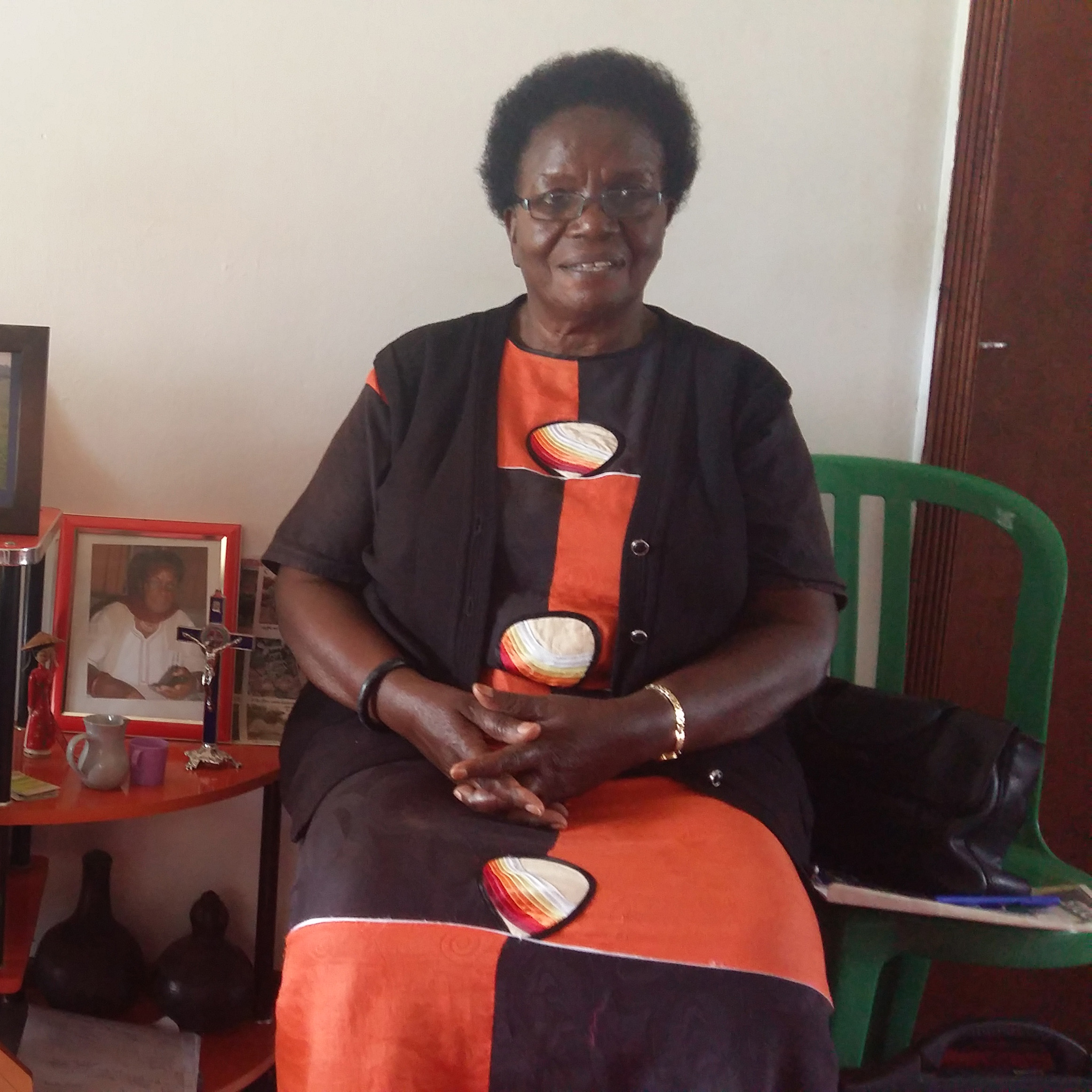 Philomena Nshangano
Philomena Nshangano is executive director of Rubyerwa Dairy Investments Ltd. (RDI) a family business she founded with her late husband. RDI is a medium-size (80-hectare) farm in Rwanyamahembe Sub County, Mbarara District. The business draws its name from its 3 sites: Rubingo, Byembogo & Rwanyamahembe that keep different stages of herd structures. On average, RDI produces 800 liters of milk daily from 45 cows. The business has received several awards from Local Government, DDA, the African Union, and livestock Shows, and is regarded as a model Commercial Dairy Training Farm. With support from SNV/TIDE, RDI has trained 750 dairy farmers & workers. RDI has designed Dairy Operational & Financial record books and hosts interns from all educational institutions and many farm visitors.
 Tobias Basson
Tobias Basson is managing director of Highgrow Agri Ltd. trading as Namakwaland farms in Uganda. Namakwaland is a social impact driven agricultural company that wishes to better the lives of Ugandan farmers through modern primary agriculture and value addition. Namakwaland’s main focus area in Uganda is Irish potato farming, working in ware potato production for retailers, processors, restaurants and local market. Namakwaland also supplies seed for the industry. Namakwaland also engages in exporting crops such as peanuts, sweet potato, and hot pepper. This is also one as part of crop rotation system. Maize for seed production is also planted. Namakwaland supplies jobs for up to 250 people, mostly women and youth and works with IFDC’s REACH-Uganda project, which connects the business with a network of over 5,000 Irish potato farmers.
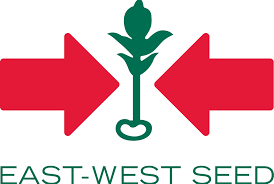 Annet Kizza
Annet Kizza is the knowledge transfer country manager for East-West Seed. Kizza has managed several projects in the areas of livelihood WASH and governance; as a grant special specialist, she possesses wide knowledge on project management and resource mobilization. She is currently managing several country programs of East-West Seed aimed at promoting vegetable growing in Uganda. Kizza has worked with and managed for several donors including USAID, EU, and DFID. She has also worked as a consultant in organizational development for both private sector and government agencies.
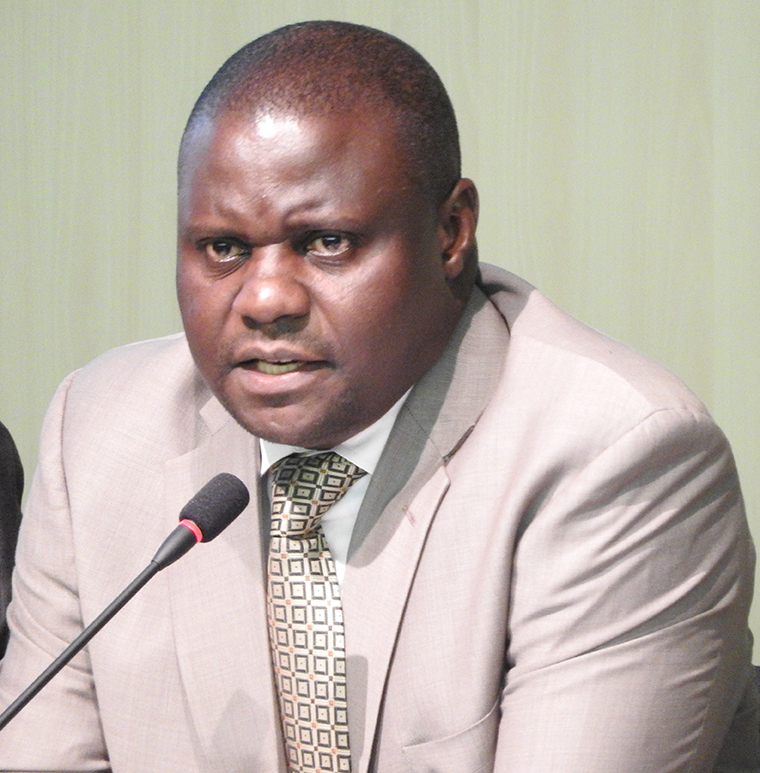 Joseph Nkuma
Joseph Nkuma has spearheaded empowerment of over 1.5 million Ugandan smallholder coffee farmers using his innovation of the farmer ownership model that has increased farming household income by 250%. Nkuma has founded and established two national social enterprises: NUCAFE as Uganda’s coffee largest entrepreneurial employer and CURAD as Uganda’s largest agribusiness incubator. Nkuma successfully championed and influenced Government of Uganda to formulate the first ever Uganda National Coffee Policy in 2013, which supports farmers to own and add value to their coffee. Joseph has won NUCAFE many awards including the National Investor of the Year Award 2016 and Best Africa Farmer Organization of the year 2016 in income diversity.
 John Tusasirwe
John Tusasirwe is the current CEO of Transformation for Rural Development (TRAFORD) Limited. TRAFORD mainly deals in climate smart agriculture training, agro-input advisory and procurement, and produce marketing/trading in cereals, pulses, and oil crops. Tusasirwe has been a team leader/CEO at TRAFORD since 2016. He is currently giving both financial, production, and operation oversight to over 10 permanent staff coordinating TRAFORD projects supporting over 6000 youth and women in both Amuria and Dokolo districts; the two projects are co-funded by SNV and Heifer international.
 Dr. Okoth Ochola Godfrey
Dr. Okoth Ochola Godfrey is a veterinary surgeon and CEO and founder of Asiima Agriconcern Ltd (2004), a family business run together with his wife Eva Ochola – marketer and co-director. Ochola specializes in the poultry value chain livestock subsector and has worked with the government for one year and with the private sector since 1990. Asiima operates in six districts in Uganda, employing more than 90 workers and supporting more than 3000 farmers indirectly. Asiima has assisted in training more than 2000 farmers, farmer groups, students, and interns with the support from these partners: AVSI/SKY, DANIDA, and Mukerere University. Asiima supports farmers through extension services from its veterinary pharmacy outlet in Kampala which doubles as a marketing hub for its products and services as well as a booking office for the DOCs.
 Elijah Mwashayenyi
Elijah Mwashayenyi is the Head of East-West Seed Knowledge Transfer in Africa, with the responsibility for resource mobilisation, partnership building, and management support to country teams. Mwashayenyi has 30 years of experience in the horticulture and development sectors. East-West Seed’s current work in Africa is focused on Tanzania, Uganda, and Nigeria but has prospects of expanding to other countries in future.
Kenneth Kagame is a retired medical professor of medicine. Since his retirement in 2011, his focus has been on dairy farming. Kagame’s 60-hectare farm is peri-urban, 12 km from Mbarara City centre. Ten hectares of the farm are devoted to bananas and fodder. Kagame keeps Friesian crosses, about 3F grade. Kagame is involved with a dairy cooperative Society, BUKAKA, under the umbrella UCCCU, in which he serves as the chairman. The cooperative owns a 3000-liter cooler and can collect and market milk for about 70 members.
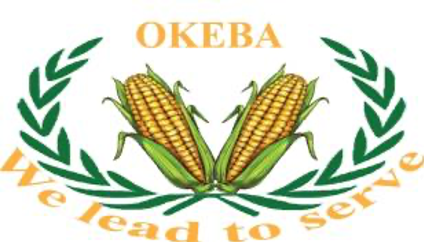 Owoyesigyire Kenneth
Owoyesigyire Kenneth is the managing director of OKEBA Uganda, Ltd. He has over 8 years of experience in project management implementation of multi-donor-funded projects, and value addition processing and marketing. Okeba’s core business falls under three thematic areas (i) innovations for livelihoods, (ii) financing and distribution of agricultural inputs, and (iii) grain bulking, marketing and Logistics and transport. In partnership with SNV, OKEBA is implementing a Climate Resilient Agribusiness for Tomorrow (CRAFT) project in the four districts of Mubende, Kyejonjo, Kakumiro, and Kyegegwa. The project is empowering 8000 farmers to increase their incomes through increased production of soybean by use of Climate Smart Agricultural Technologies.



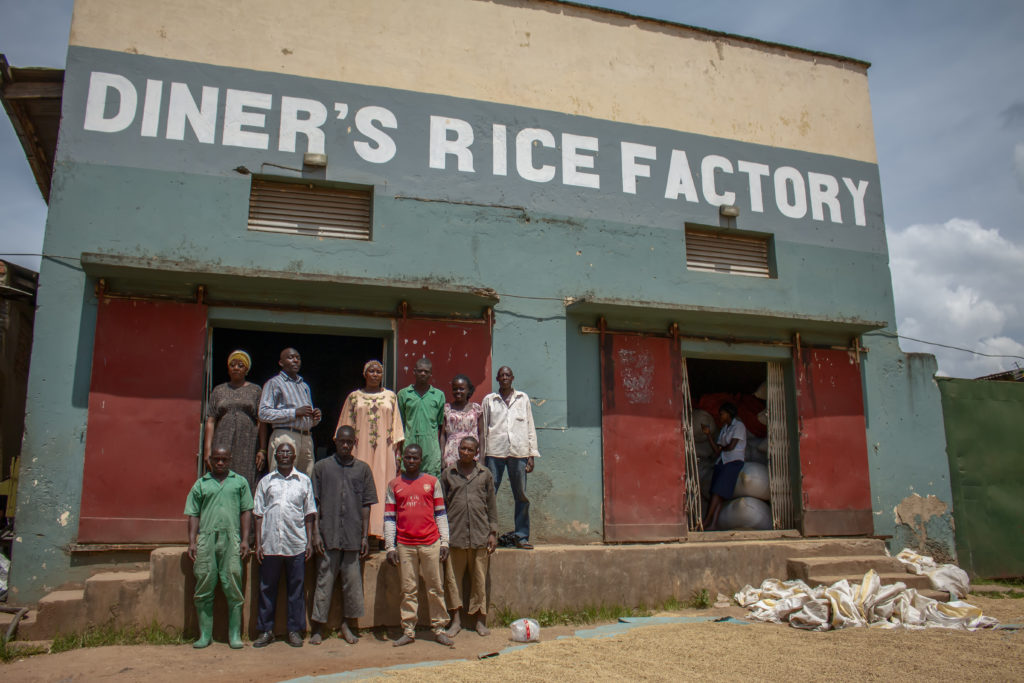
 Philomena Nshangano is executive director of Rubyerwa Dairy Investments Ltd. (RDI) a family business she founded with her late husband. RDI is a medium-size (80-hectare) farm in Rwanyamahembe Sub County, Mbarara District. The business draws its name from its 3 sites: Rubingo, Byembogo & Rwanyamahembe that keep different stages of herd structures. On average, RDI produces 800 liters of milk daily from 45 cows. The business has received several awards from Local Government, DDA, the African Union, and livestock Shows, and is regarded as a model Commercial Dairy Training Farm. With support from SNV/TIDE, RDI has trained 750 dairy farmers & workers. RDI has designed Dairy Operational & Financial record books and hosts interns from all educational institutions and many farm visitors.
Philomena Nshangano is executive director of Rubyerwa Dairy Investments Ltd. (RDI) a family business she founded with her late husband. RDI is a medium-size (80-hectare) farm in Rwanyamahembe Sub County, Mbarara District. The business draws its name from its 3 sites: Rubingo, Byembogo & Rwanyamahembe that keep different stages of herd structures. On average, RDI produces 800 liters of milk daily from 45 cows. The business has received several awards from Local Government, DDA, the African Union, and livestock Shows, and is regarded as a model Commercial Dairy Training Farm. With support from SNV/TIDE, RDI has trained 750 dairy farmers & workers. RDI has designed Dairy Operational & Financial record books and hosts interns from all educational institutions and many farm visitors. Tobias Basson is managing director of Highgrow Agri Ltd. trading as Namakwaland farms in Uganda. Namakwaland is a social impact driven agricultural company that wishes to better the lives of Ugandan farmers through modern primary agriculture and value addition. Namakwaland’s main focus area in Uganda is Irish potato farming, working in ware potato production for retailers, processors, restaurants and local market. Namakwaland also supplies seed for the industry. Namakwaland also engages in exporting crops such as peanuts, sweet potato, and hot pepper. This is also one as part of crop rotation system. Maize for seed production is also planted. Namakwaland supplies jobs for up to 250 people, mostly women and youth and works with IFDC’s REACH-Uganda project, which connects the business with a network of over 5,000 Irish potato farmers.
Tobias Basson is managing director of Highgrow Agri Ltd. trading as Namakwaland farms in Uganda. Namakwaland is a social impact driven agricultural company that wishes to better the lives of Ugandan farmers through modern primary agriculture and value addition. Namakwaland’s main focus area in Uganda is Irish potato farming, working in ware potato production for retailers, processors, restaurants and local market. Namakwaland also supplies seed for the industry. Namakwaland also engages in exporting crops such as peanuts, sweet potato, and hot pepper. This is also one as part of crop rotation system. Maize for seed production is also planted. Namakwaland supplies jobs for up to 250 people, mostly women and youth and works with IFDC’s REACH-Uganda project, which connects the business with a network of over 5,000 Irish potato farmers.  Annet Kizza is the knowledge transfer country manager for East-West Seed. Kizza has managed several projects in the areas of livelihood WASH and governance; as a grant special specialist, she possesses wide knowledge on project management and resource mobilization. She is currently managing several country programs of East-West Seed aimed at promoting vegetable growing in Uganda. Kizza has worked with and managed for several donors including USAID, EU, and DFID. She has also worked as a consultant in organizational development for both private sector and government agencies.
Annet Kizza is the knowledge transfer country manager for East-West Seed. Kizza has managed several projects in the areas of livelihood WASH and governance; as a grant special specialist, she possesses wide knowledge on project management and resource mobilization. She is currently managing several country programs of East-West Seed aimed at promoting vegetable growing in Uganda. Kizza has worked with and managed for several donors including USAID, EU, and DFID. She has also worked as a consultant in organizational development for both private sector and government agencies. Joseph Nkuma has spearheaded empowerment of over 1.5 million Ugandan smallholder coffee farmers using his innovation of the farmer ownership model that has increased farming household income by 250%. Nkuma has founded and established two national social enterprises: NUCAFE as Uganda’s coffee largest entrepreneurial employer and CURAD as Uganda’s largest agribusiness incubator. Nkuma successfully championed and influenced Government of Uganda to formulate the first ever Uganda National Coffee Policy in 2013, which supports farmers to own and add value to their coffee. Joseph has won NUCAFE many awards including the National Investor of the Year Award 2016 and Best Africa Farmer Organization of the year 2016 in income diversity.
Joseph Nkuma has spearheaded empowerment of over 1.5 million Ugandan smallholder coffee farmers using his innovation of the farmer ownership model that has increased farming household income by 250%. Nkuma has founded and established two national social enterprises: NUCAFE as Uganda’s coffee largest entrepreneurial employer and CURAD as Uganda’s largest agribusiness incubator. Nkuma successfully championed and influenced Government of Uganda to formulate the first ever Uganda National Coffee Policy in 2013, which supports farmers to own and add value to their coffee. Joseph has won NUCAFE many awards including the National Investor of the Year Award 2016 and Best Africa Farmer Organization of the year 2016 in income diversity. John Tusasirwe is the current CEO of Transformation for Rural Development (TRAFORD) Limited. TRAFORD mainly deals in climate smart agriculture training, agro-input advisory and procurement, and produce marketing/trading in cereals, pulses, and oil crops. Tusasirwe has been a team leader/CEO at TRAFORD since 2016. He is currently giving both financial, production, and operation oversight to over 10 permanent staff coordinating TRAFORD projects supporting over 6000 youth and women in both Amuria and Dokolo districts; the two projects are co-funded by SNV and Heifer international.
John Tusasirwe is the current CEO of Transformation for Rural Development (TRAFORD) Limited. TRAFORD mainly deals in climate smart agriculture training, agro-input advisory and procurement, and produce marketing/trading in cereals, pulses, and oil crops. Tusasirwe has been a team leader/CEO at TRAFORD since 2016. He is currently giving both financial, production, and operation oversight to over 10 permanent staff coordinating TRAFORD projects supporting over 6000 youth and women in both Amuria and Dokolo districts; the two projects are co-funded by SNV and Heifer international. Dr. Okoth Ochola Godfrey is a veterinary surgeon and CEO and founder of Asiima Agriconcern Ltd (2004), a family business run together with his wife Eva Ochola – marketer and co-director. Ochola specializes in the poultry value chain livestock subsector and has worked with the government for one year and with the private sector since 1990. Asiima operates in six districts in Uganda, employing more than 90 workers and supporting more than 3000 farmers indirectly. Asiima has assisted in training more than 2000 farmers, farmer groups, students, and interns with the support from these partners: AVSI/SKY, DANIDA, and Mukerere University. Asiima supports farmers through extension services from its veterinary pharmacy outlet in Kampala which doubles as a marketing hub for its products and services as well as a booking office for the DOCs.
Dr. Okoth Ochola Godfrey is a veterinary surgeon and CEO and founder of Asiima Agriconcern Ltd (2004), a family business run together with his wife Eva Ochola – marketer and co-director. Ochola specializes in the poultry value chain livestock subsector and has worked with the government for one year and with the private sector since 1990. Asiima operates in six districts in Uganda, employing more than 90 workers and supporting more than 3000 farmers indirectly. Asiima has assisted in training more than 2000 farmers, farmer groups, students, and interns with the support from these partners: AVSI/SKY, DANIDA, and Mukerere University. Asiima supports farmers through extension services from its veterinary pharmacy outlet in Kampala which doubles as a marketing hub for its products and services as well as a booking office for the DOCs. Owoyesigyire Kenneth is the managing director of OKEBA Uganda, Ltd. He has over 8 years of experience in project management implementation of multi-donor-funded projects, and value addition processing and marketing. Okeba’s core business falls under three thematic areas (i) innovations for livelihoods, (ii) financing and distribution of agricultural inputs, and (iii) grain bulking, marketing and Logistics and transport. In partnership with SNV, OKEBA is implementing a Climate Resilient Agribusiness for Tomorrow (CRAFT) project in the four districts of Mubende, Kyejonjo, Kakumiro, and Kyegegwa. The project is empowering 8000 farmers to increase their incomes through increased production of soybean by use of Climate Smart Agricultural Technologies.
Owoyesigyire Kenneth is the managing director of OKEBA Uganda, Ltd. He has over 8 years of experience in project management implementation of multi-donor-funded projects, and value addition processing and marketing. Okeba’s core business falls under three thematic areas (i) innovations for livelihoods, (ii) financing and distribution of agricultural inputs, and (iii) grain bulking, marketing and Logistics and transport. In partnership with SNV, OKEBA is implementing a Climate Resilient Agribusiness for Tomorrow (CRAFT) project in the four districts of Mubende, Kyejonjo, Kakumiro, and Kyegegwa. The project is empowering 8000 farmers to increase their incomes through increased production of soybean by use of Climate Smart Agricultural Technologies.












